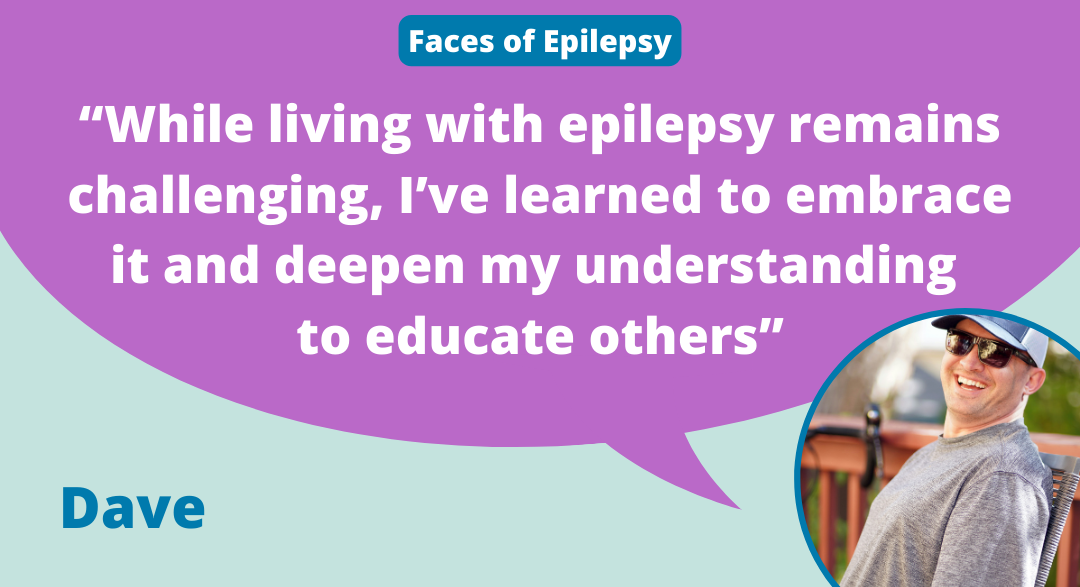Dave’s epilepsy journey – Tackling seizures, stigma and surgery
30 November 2023

After experiencing auras and focal seizures since age 19, Dave was diagnosed with idiopathic epilepsy at 22 following his first generalised seizure.
“At first, I took the diagnosis hard. Losing my driving privilege and facing the stigma of epilepsy was difficult for the first few years. While living with epilepsy remains challenging, I’ve learned to embrace it and deepen my understanding to educate others.”
“I mostly experience impaired awareness focal seizures, typically accompanied by a prodromal phase that can last for days. Despite medication, my seizures occasionally produce secondary generalization (focal seizures that spread from one side to both sides of the brain), occurring in clusters, following a multi-day rhythm.”
Many people with epilepsy, including Dave, may need to stop driving until they reach a seizure-free period, relying on friends and public transportation.
“In addition to the challenges of not driving, I live with constant anxiety about the next seizure, leading to headaches and insomnia. Despite practicing self-care through exercise and creative hobbies, the stress and embarrassment fuels the vicious cycle of refractory seizures – I have seizures due to stress and I am stressed because I keep having seizures.”
Since seeing an epileptologist for a few years, Dave attends a comprehensive epilepsy centre for an extended phase 1 EEG study and started the pre-surgical evaluation process in May of 2023.
“I’ve recently had epilepsy surgery to have the Neuropace RNS system implanted to gather EEG data from my seizure focus 24/7 and I plan to have the neuromodulating stimulation activated in January 2024. With the help of medication, this procedure should give me more control over my seizures”.
Dave helps educate his loved ones on seizure first aid, so they know what to do should one happen.
“My loved ones can support me after a seizure by reassuring me that I am in a safe place and should not be embarrassed. I also emphasise that not all seizures are a medical emergency to avoid unnecessary ER visits.”
For those seeking epilepsy support and information, Dave recommends the Epilepsy Foundation.
“Participating in events by the Epilepsy Foundation and similar organisations is a great way to contribute and learn. I also recommend researching peer-reviewed literature on epilepsy and exploring social media resources, including physician pages, posts, podcasts, and videos.”
“To learn more about epilepsy, engaging in respectful conversations with friends and loved ones with the condition offers invaluable firsthand insights, aiding in raising awareness and dissolving the stigma surrounding epilepsy.”
Huge thank you to Dave for sharing their story with us.
